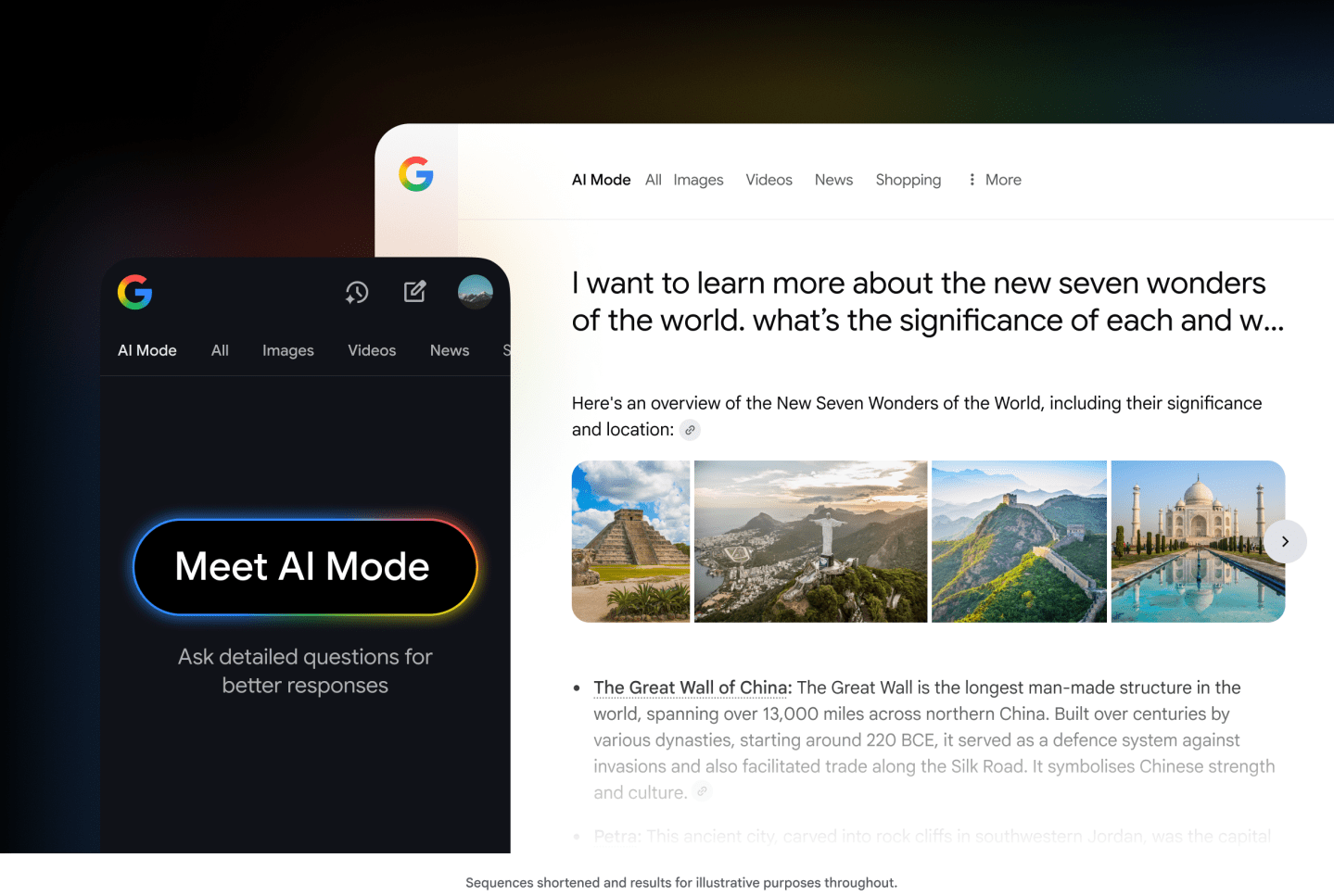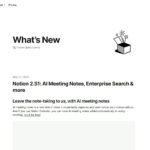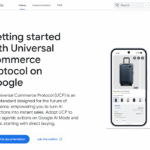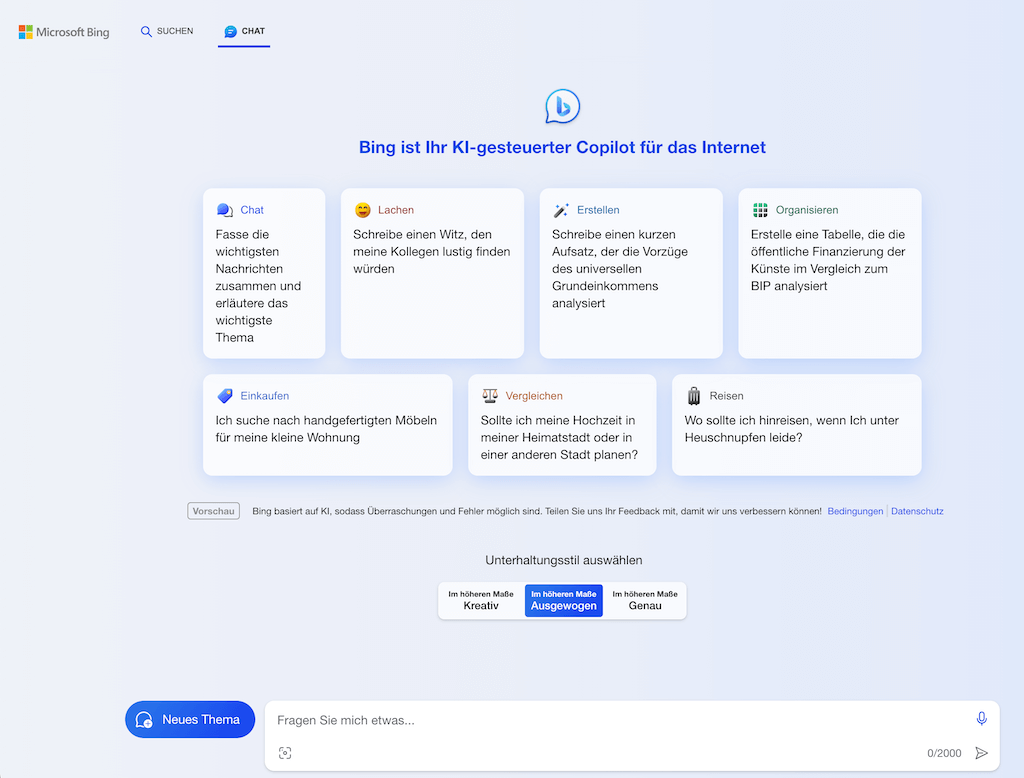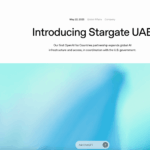Google is now showing AI Mode in Google Search in 180 additional countries. This changes the proven Google search more towards AI chat and enables agentic AI use cases such as an independent restaurant search according to the user’s criteria. This changes searches for millions of users.
AI Mode is now live in 180 additional countries, initially only in English.
Google is rolling out “AI Mode” within Google Search in 180 countries and initially only in English, but not yet in the EU. AI Mode was previously available in the USA, UK and India. Further countries and languages are planned. Learn more about the AI mode on Googles landingpage for the AI Mode.
Use case: Restaurant booking with AI agent features: from passive search service to proactive AI agent
New AI agent features can also be tested for paying Google AI Ultra subscribers: the focus is on an agent-based system that is able to fully automate tasks such as restaurant bookings on behalf of the user. In contrast to previous search functions, it no longer simply presents links, but uses AI bots to take on and complete complex multi-step tasks independently. Google is thus adapting to a market dynamic in which AI search engines such as ChatGPT Search, Perplexity or Bing Copilot are already scoring points with dialog-oriented assistance and order execution.
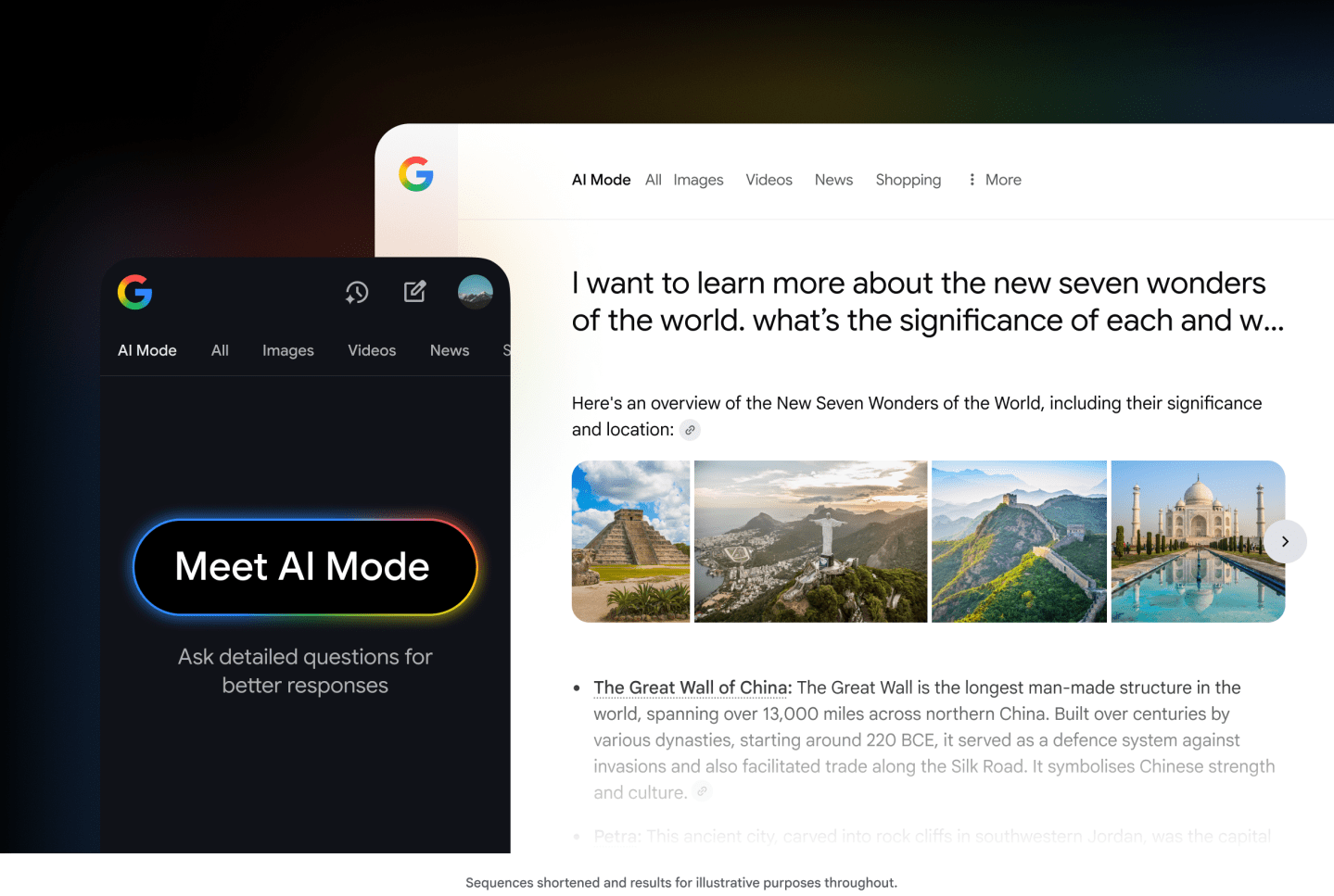
Paradigm shift – impact on users, companies and digital ecosystems
Agentic Search shifts control to the AI: the user initiates a task with their prompt, the AI agent accesses external APIs and services and interacts directly with platforms such as OpenTable or Tripadvisor. This offers enormous convenience for users, as processes such as table reservations, ticket bookings or shopping can be completely delegated. At the same time, there are challenges in terms of data protection, susceptibility to errors (hallucinations) and transparency of the sources used.
Read also: Gemini 3.1 Pro: The new reasoning monster for developers
From a search engine optimization (SEO) and content marketing perspective, Google AI Mode requires a rethink. The visibility of a brand increasingly results from the machine readability and contextualizability of content for AI agents, as direct user contact with their own website is reduced. Advertising providers and publishers must prepare for declining advertising revenue as more and more users rely on AI-based, dialog-oriented and often ad-free search solutions.
Strategic race and social relevance
While alternative providers such as Perplexity and OpenAI are already setting an innovation-driven pace, Google is using its existing market dominance to keep up with the global market, which is estimated at around USD 43.6 billion. The target group – primarily millennials and Gen Z – is also driving this development. The focus is on equipping traditional search with AI capabilities and positioning it as a comprehensive, everyday assistant. In the long term, this shift is likely to redefine the search ecosystem, the relationship between brands, publishers and end users and fundamental expectations of the search process.
Summary
- Google is testing “AI Mode” in search: tasks such as restaurant bookings are fully automated
- Rollout in 180 countries, previously only in the USA, UK and India
- Google no longer just delivers links, but takes over the actual order execution (agentic mode)
- Advantages and risks: This makes it easier for users to search, but poses risks in terms of data protection, false information due to possible AI hallucinations and filter bubbles (only certain content is pre-selected).
- The SEO and advertising landscape is changing fundamentally – machine readability, AI mediation and advertising freedom are becoming increasingly important.
Source: The Verge

